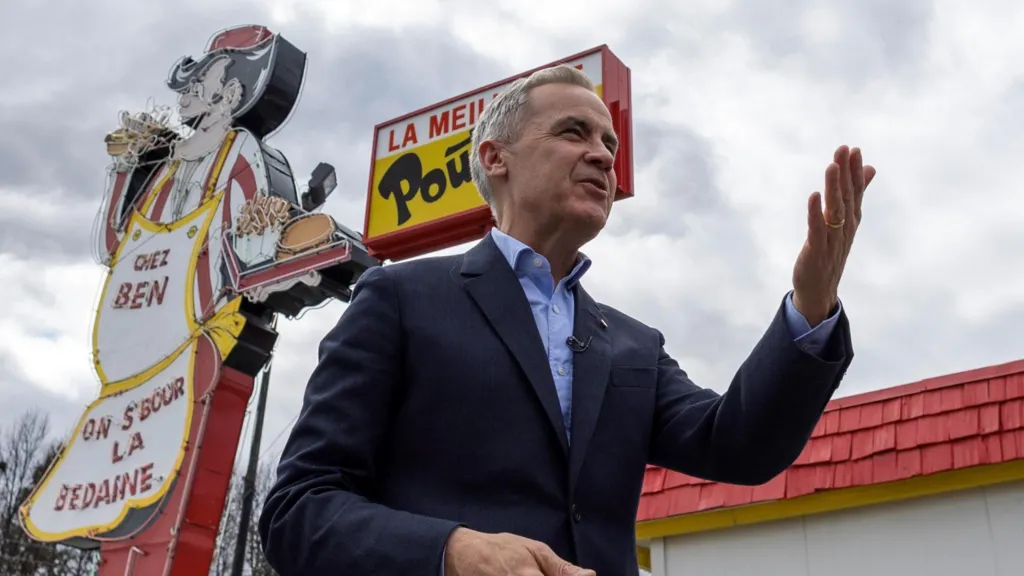Patriotism surges in Quebec as Trump rattles Canada

In Quebec, the issue of independence from Canada has long simmered. But faced with US tariffs and President Donald Trump’s comments about making Canada the 51st US state, many voters are now seeking unity.
Suzanne Dumont knows who she will vote for in Canada’s election, though it’s a decision made “not from my heart, it’s from my head”.
The 70-year-old from Quebec City considers herself a sovereigntist, but hopes when Canadians go to the polls on Monday they’ll elect a majority government to take on Trump.
The Bloc Québécois, a federal party that supports independence and only runs candidates in the predominantly French-speaking province, can’t deliver on that, she says.
Supporting the Conservatives is “unthinkable” to Ms Dumont, so this time she will be voting Liberal.
In Montreal, Louis Plouffe is picking up groceries at the city’s Jean-Talon market.
And while Mr Plouffe has reservations about the Liberal leader, he believes Mark Carney has come across as credible and confident in interviews. He too will vote for the party.
“Canadian patriotism is on the rise in Quebec”, said Émilie Foster, an adjunct professor in politics at Carleton University. “We prefer to be part of Canada instead of being part of the United States, if we have to choose,” she says.
Sébastien Dallaire, a pollster with Léger, puts it this way: “It’s hard to say now is the time to talk about Quebec sovereignty, or now is the time to do things specifically to defend Quebec, when clearly there’s a national crisis and everybody is staring not at Ottawa as the adversary, but as Washington as the clear opponent.”
A recent Léger survey suggests that almost 40% of voters for the Bloc believe an independent Quebec would have less influence than Canada as a whole in dealing with the US.
The Liberals are currently polling at about 46% in the province, with the Bloc a distant second at 25%, slightly ahead of the Conservatives, who have long struggled to gain real traction there.
Quebec can be a wildcard in general elections, and winning the province – which holds 78 seats of the 343 in the House of Commons – can propel a party to power.
The abandonment of smaller parties – like the Bloc, the left-leaning New Democrats or the Green Party – is a trend seen nationwide as Canadians rally around either the Liberals or the Conservatives in the face of a new threat from their neighbour.
Carney, a former central banker for Canada and the UK, is seeking to paint himself as the leader most able to help the country navigate the crisis. Conservative leader Pierre Poilievre is billing himself as the change candidate who can restore the “Canadian promise”.
It has been a remarkable election campaign, one sparked by the resignation of longtime Prime Minister Justin Trudeau and then overshadowed by an unprecedented intervention from an American president which transformed the state of the race.
Next:Can Mandela’s former negotiator charm Donald Trump?
Related Reading
- US says it shot down Iranian drone flying towards aircraft carrier
- Venezuela could now define Trump’s legacy – and America’s place in the world
- US prosecutor resigns after Trump says ‘I want him out’
- Can Mandela’s former negotiator charm Donald Trump?
- Six lingering questions about Trump officials’ Signal chat
- Trump officials attack journalist after Signal leak published in full
- India ready to provide all possible cooperation to end Russia-Ukraine conflict: PM Modi
